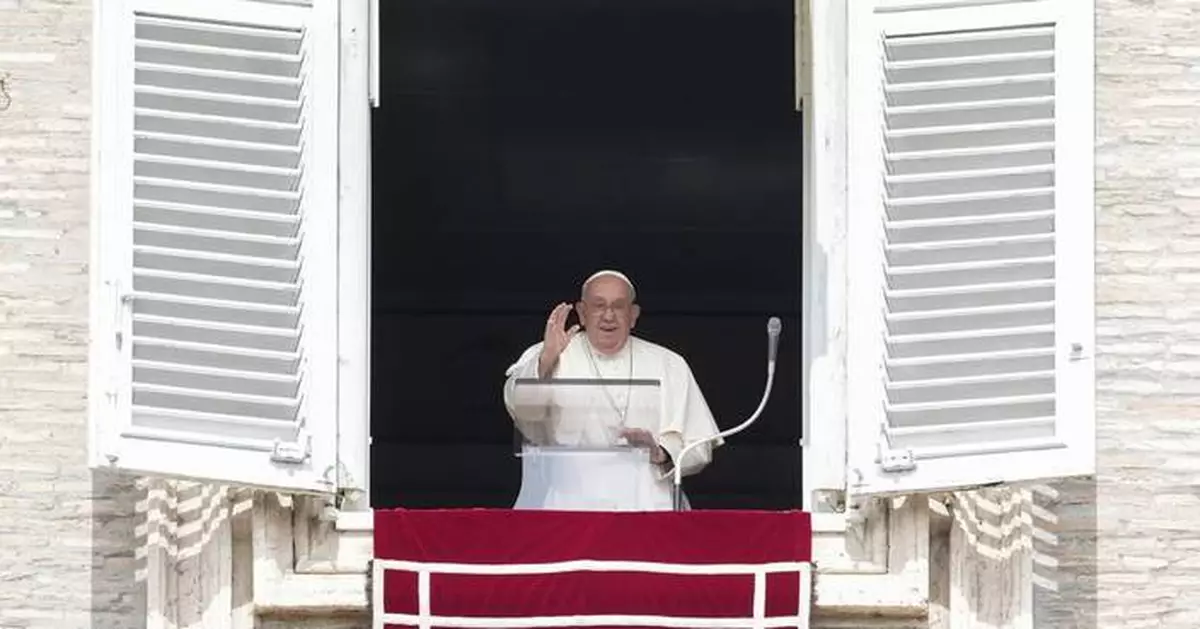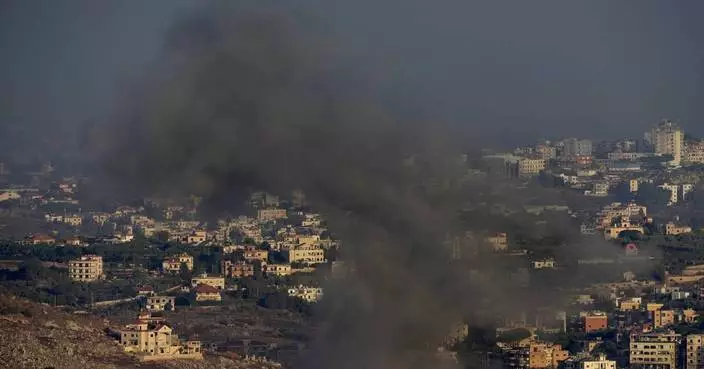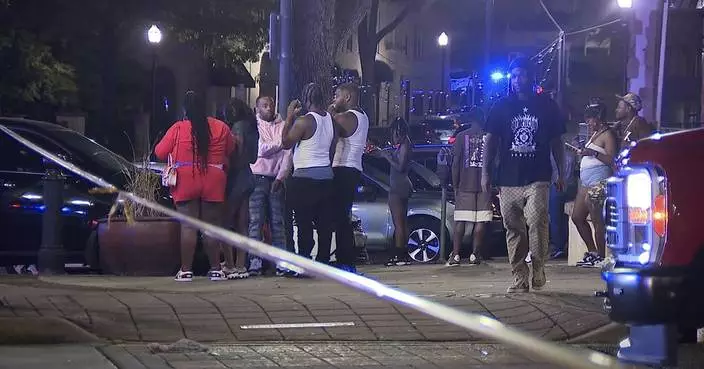VATICAN CITY (AP) — The Vatican confirmed that plans remain in place for Pope Francis to go to Belgium and Luxembourg later this week, despite having canceled all his audiences Monday because of a “slight flu-like state.”
Vatican spokesperson Matteo Bruni said the cancellation only concerned Monday's audiences. He spoke to reporters before the official start of his Vatican briefing to illustrate details of the trip.
Earlier in the morning, the Vatican announced that Francis had canceled his audiences Monday as a “precaution.”
Francis is due to visit Luxembourg on Thursday and then spend the rest of the week in Belgium, ending with a Mass in Brussels on Sunday.
The 87-year-old pope, who has been using a wheelchair for two years, has battled a series of health problems in recent years and had part of one lung removed as a young man because of a respiratory infection.
He has had a packed schedule of audiences since returning from a four-nation, 11-day journey through Asia on Sept. 13, which was the longest and farthest trip of his pontificate. The audiences have included multiple meetings with visiting bishops, individual audiences with his Vatican aides as well as a big encounter on Friday with members of popular movements.
The statement from the Holy See press office described Francis as having a “flu-like state.” Through much of last autumn and winter, Francis battled acute bronchitis and recurring bouts of influenza, which forced him to cancel a quick trip to Dubai in November to participate in the U.N. climate conference.
He did so, the Vatican said at the time, at the recommendation of his doctors.
In Belgium, Francis is due to celebrate the 600th anniversary of the country’s main Catholic universities, and minister to Belgians who have been rocked by years of unrelenting revelations of clergy sexual abuse and cover-up.
The challenging Asia trip, followed so closely by the Belgium and Luxembourg visit, was already going to test Francis' health, especially as he heads into a busy autumn. As soon as he returns from Belgium, he is due to preside over a three-week synod, or meeting of bishops, which involves long days of closed-door debate about the future of the church.
Francis' scheduled audiences on Monday included with the members of the Pontifical Academy of Sciences, who are meeting at the Vatican this week for their plenary assembly, and participants in a Christmas contest. The Vatican published the texts Francis was supposed to have delivered to both.
Francis has had several health problems in recent years. In 2023, he spent three days in the hospital receiving intravenous antibiotics to treat a respiratory infection. In 2021, he had 13 inches (33 centimeters) of his colon removed, and then had a follow-up surgery two years later to repair an abdominal hernia and to remove scar tissue.
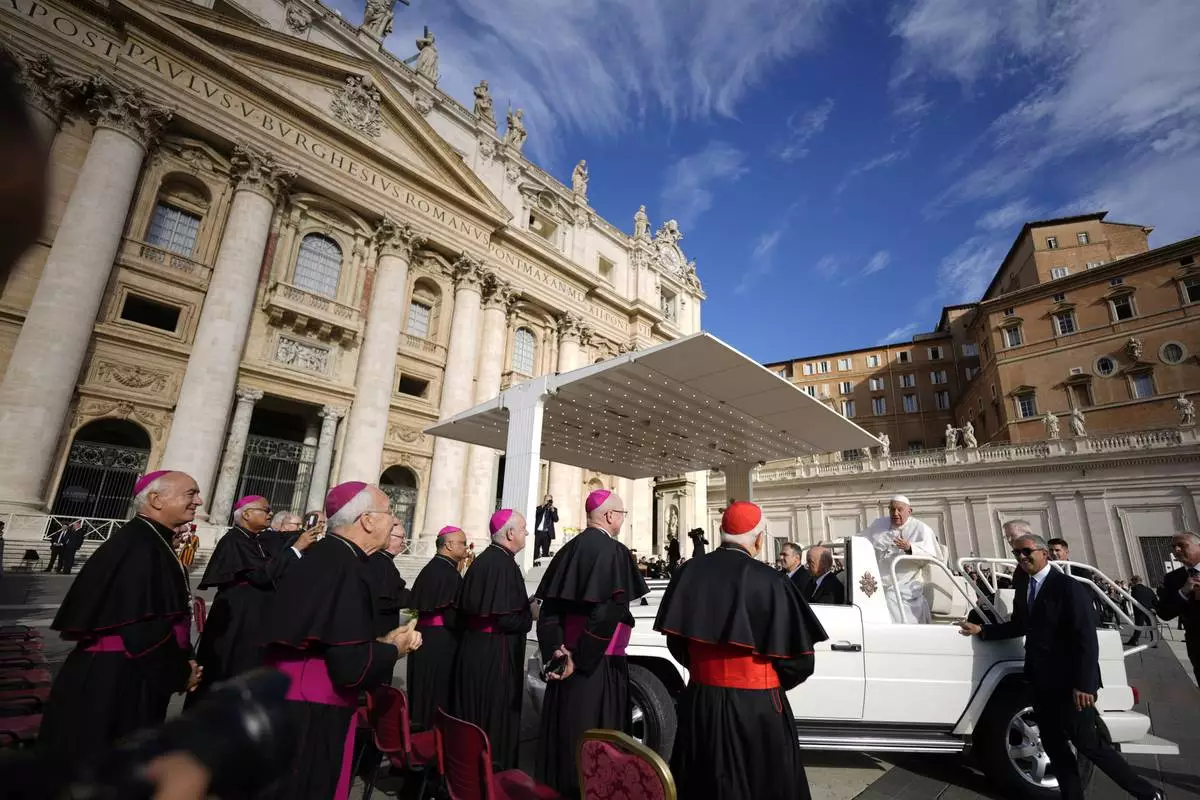
Pope Francis arrives for his weekly general audience in St. Peter's Square, at the Vatican, Wednesday, Sept. 18, 2024. (AP Photo/Andrew Medichini)
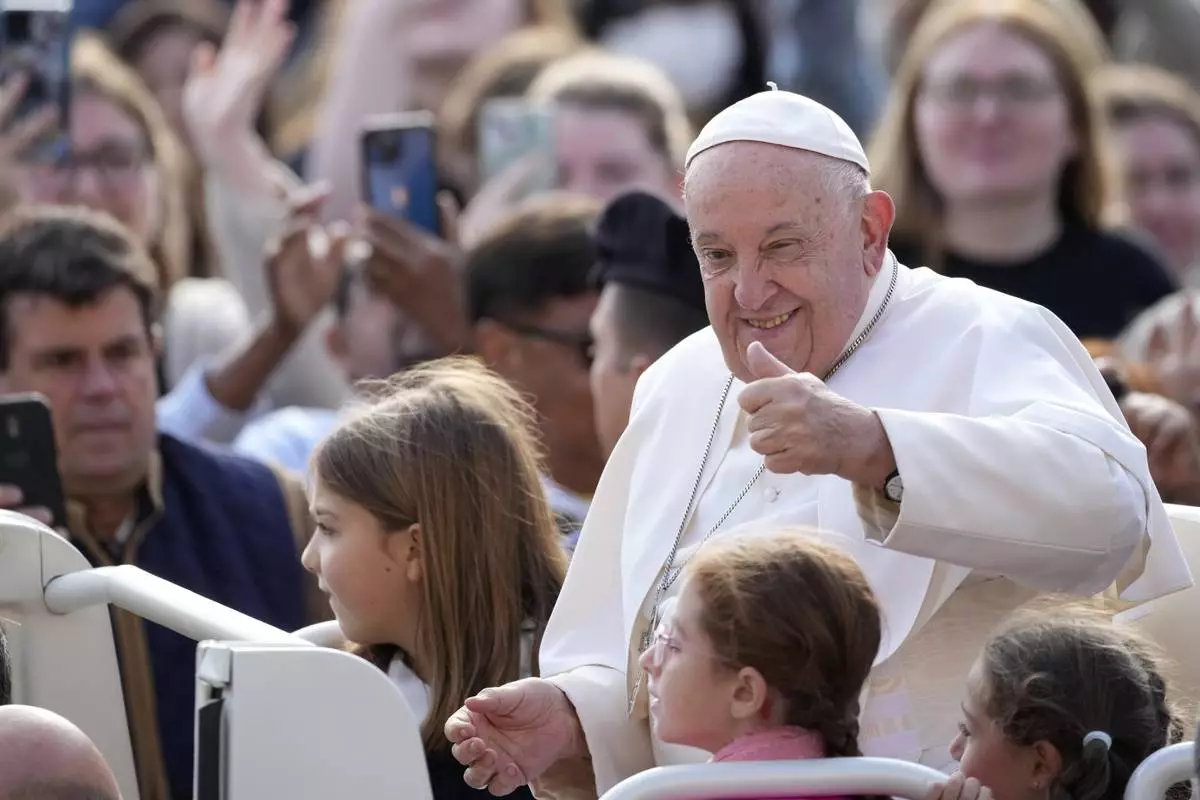
Pope Francis gives his thumbs up as he arrives for his weekly general audience in St. Peter's Square, at the Vatican, Wednesday, Sept. 18, 2024. (AP Photo/Andrew Medichini)

Pope Francis leaves at the end of his weekly general audience in St. Peter's Square, at the Vatican, Wednesday, Sept. 18, 2024. (AP Photo/Andrew Medichini)
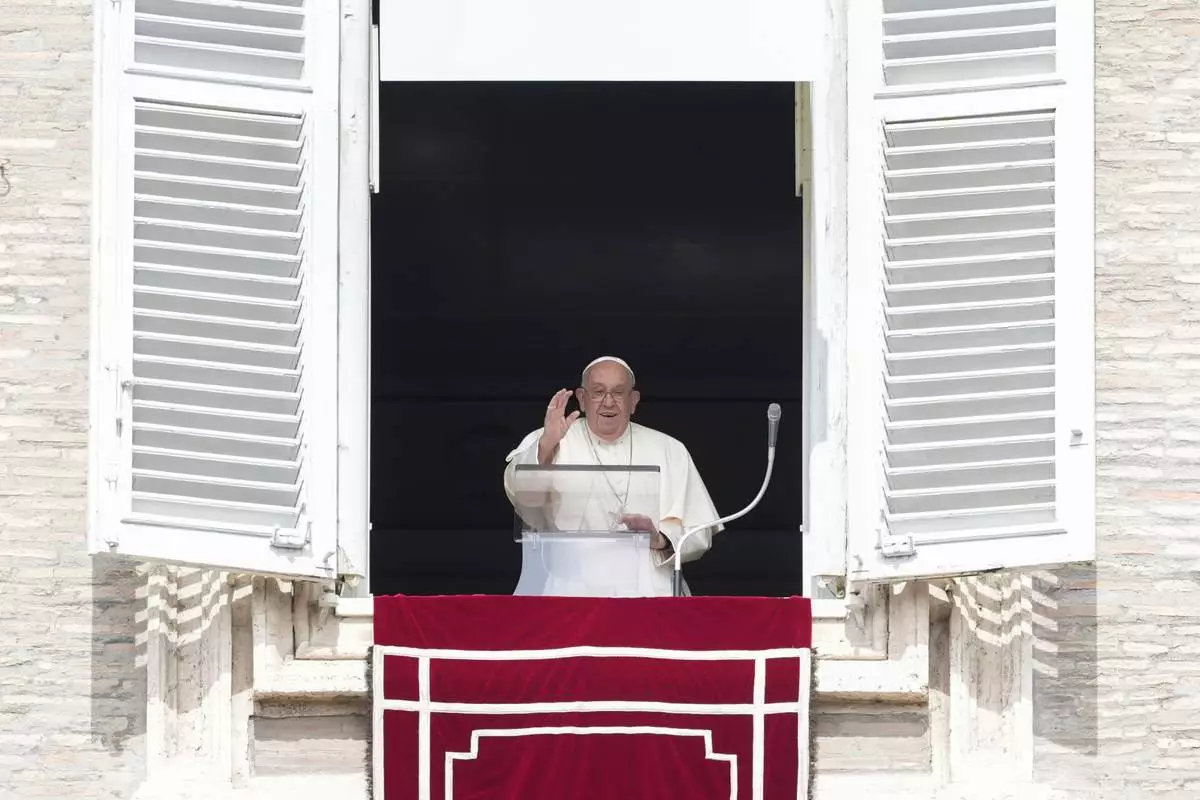
Pope Francis waves during the Angelus noon prayer from the window of his studio overlooking St.Peter's Square, at the Vatican, Sunday, Sept. 22, 2024. (AP Photo/Alessandra Tarantino)
JERUSALEM (AP) — The Israeli military says it has struck 300 targets in Lebanon as it steps up pressure against the Hezbollah militant group.
The army announced the strikes on the social media platform X, posting a photo of what is said was the military chief, Lt. Gen. Herzi Halevi, approving additional attacks from military headquarters in Tel Aviv.
It is one of the most intense barrages of airstrikes in nearly one year of fighting against Hezbollah. Halevi and other Israeli leaders have promised tougher action against Hezbollah in the coming days.
As Israel was carrying out the attacks, Israeli authorities reported a series of air-raid sirens in northern Israel warning of incoming rocket fire from Lebanon.
Israel earlier Monday urged residents of southern Lebanon to leave their homes in areas where it claims Hezbollah has stored weapons, warning of “extensive strikes” there.
THIS IS A BREAKING NEWS UPDATE. AP’s earlier story follows below.
JERUSALEM (AP) — Israel on Monday urged residents of southern Lebanon to evacuate from homes and other buildings where it claimed Hezbollah has stored weapons, saying the military would conduct “extensive strikes” against the militant group.
It was the first warning of its kind in nearly a year of steadily escalating conflict and came after a particularly heavy exchange of fire on Sunday. Hezbollah launched around 150 rockets, missiles and drones into northern Israel in retaliation for strikes that killed a top commander and dozens of fighters.
There was no sign of an immediate exodus from the villages of southern Lebanon, and the warning left open the possibility that some residents could live in or near targeted structures without knowing that they are risk.
The increasing strikes and counterstrikes have raised fears of an all-out war, even as Israel is still battling Hamas in Gaza and trying to return scores of hostages taken in Hamas' Oct. 7 attack. Hezbollah has vowed to continue its strikes in solidarity with the Palestinians and Hamas, a fellow Iran-backed militant group. Israel says it is committed to returning calm to its northern border.
Associated Press journalists in southern Lebanon reported heavy airstrikes targeting many areas Monday morning, including some far from the border.
Lebanon's state-run National News Agency said the strikes hit a forested area in the central province of Byblos, about 130 kilometers (81 miles) north of the Israeli-Lebanese border, for the first time since the exchanges began in October. No injuries were reported there. Israel also bombed targets in the northeastern Baalbek and Hermel regions, where a shepherd was killed and two family members were wounded, according to the news agency. It said a total of 30 people were wounded in strikes.
The Lebanese Health Ministry asked hospitals in southern Lebanon and the eastern Bekaa valley to postpone surgeries that could be done later. The ministry said in a statement that its request aimed to keep hospitals ready to deal with people wounded by “Israel’s expanding aggression on Lebanon.”
An Israeli military official said Israel is focused on aerial operations and has no immediate plans for a ground operation. The official, speaking on condition of anonymity in keeping with regulations, said the strikes are aimed at curbing Hezbollah's ability to launch more strikes into Israel.
Lebanese media reported that residents received text messages urging them to move away from any building where Hezbollah stores arms until further notice.
“If you are in a building housing weapons for Hezbollah, move away from the village until further notice,” the Arabic message reads, according to Lebanese media.
Lebanon's information minister, Ziad Makary, said in a statement that his office in Beirut had received a recorded message telling people to leave the building.
“This comes in the framework of the psychological war implemented by the enemy,” Makary said, and urged people “not to give the matter more attention than it deserves.”
It was not immediately clear how many people would be affected by the Israeli orders. Communities on both sides of the border have largely emptied out because of the near-daily exchanges of fire.
Israel has accused Hezbollah of transforming entire communities in the south into militant bases, with hidden rocket launchers and other infrastructure. That could lead the Israeli military to wage an especially heavy bombing campaign, even if no ground forces move in.
The military said it had targeted more than 150 militant sites early Monday. Residents of different villages in southern Lebanon posted photos on social media of airstrikes and large plumes of smoke. The state-run National News Agency also reported airstrikes on different areas.
An Israeli airstrike on a Beirut suburb on Friday killed a top Hezbollah military commander and more than a dozen fighters, as well as dozens of civilians, including women and children.
Last week, thousands of communications devices, used mainly by Hezbollah members, exploded in different parts of Lebanon, killing 39 people and wounding nearly 3,000. Lebanon blamed Israel for the attacks, but Israel did not confirm or deny any responsibility.
Hezbollah began firing into Israel a day after the Oct. 7 attack in what it said was an attempt to pin down Israeli forces to help Palestinian fighters in Gaza. Israel has retaliated with airstrikes, and the conflict has steadily intensified over the past year.
The fighting has killed hundreds of people in Lebanon, dozens in Israel and displaced tens of thousands on both sides of the border. It has also sparked brush fires that have destroyed agriculture and scarred the landscape.
Israel has vowed to push Hezbollah back from the border so its citizens can return to their homes, saying it prefers to do so diplomatically but is willing to use force. Hezbollah has said it will keep up its attacks until there is a cease-fire in Gaza, but that appears increasingly elusive as the war nears its anniversary.
Hamas-led militants stormed into southern Israel on Oct. 7, killing some 1,200 people, mostly civilians, and abducting around 250. Some 100 captives are still held in Gaza, a third of whom are believed to be dead, after most of the rest were released during a weeklong cease-fire in November.
Israel's offensive has killed over 41,000 Palestinians, according to Gaza's Health Ministry, which does not differentiate between civilians and fighters in its count. It says women and children make up a little over half of those killed. Israel says it has killed over 17,000 militants, without providing evidence.
Mroue reported from Beirut. Associated Press writer Abby Sewell in Beirut contributed to this report.
Follow AP’s war coverage at https://apnews.com/hub/israel-hamas-war
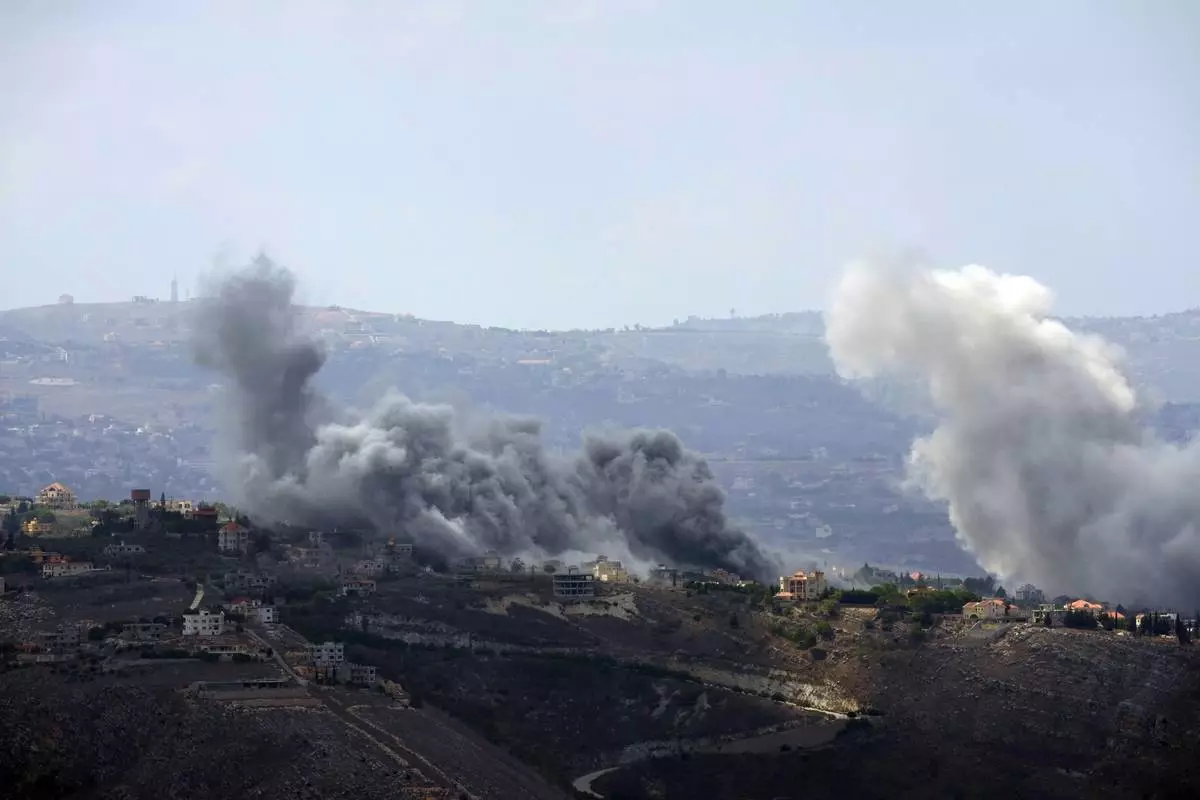
Smoke rises from Israeli airstrikes on Taybeh village, seen from the southern town of Marjayoun, Lebanon, Monday, Sept. 23, 2024. (AP Photo/Hussein Malla)
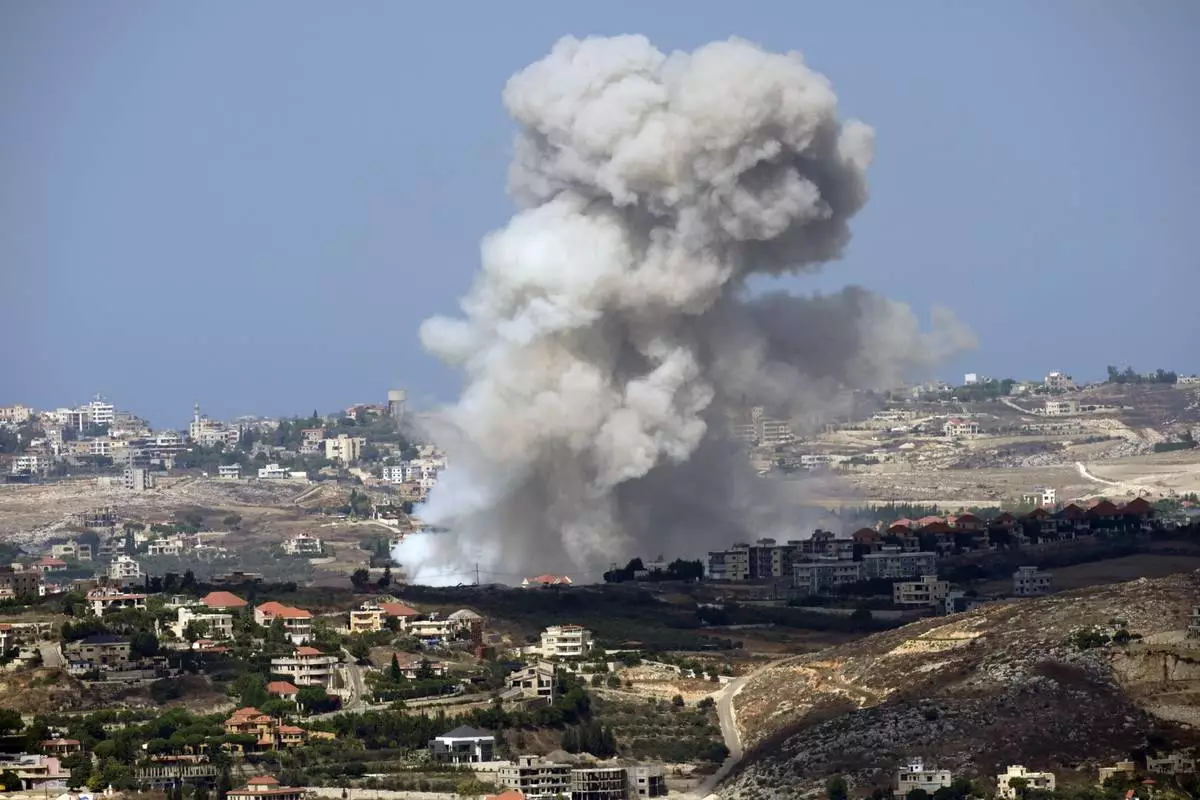
Smoke rises from Israeli shelling on villages in the Nabatiyeh district, seen from the southern town of Marjayoun, Lebanon, Monday, Sept. 23, 2024. (AP Photo/Hussein Malla)
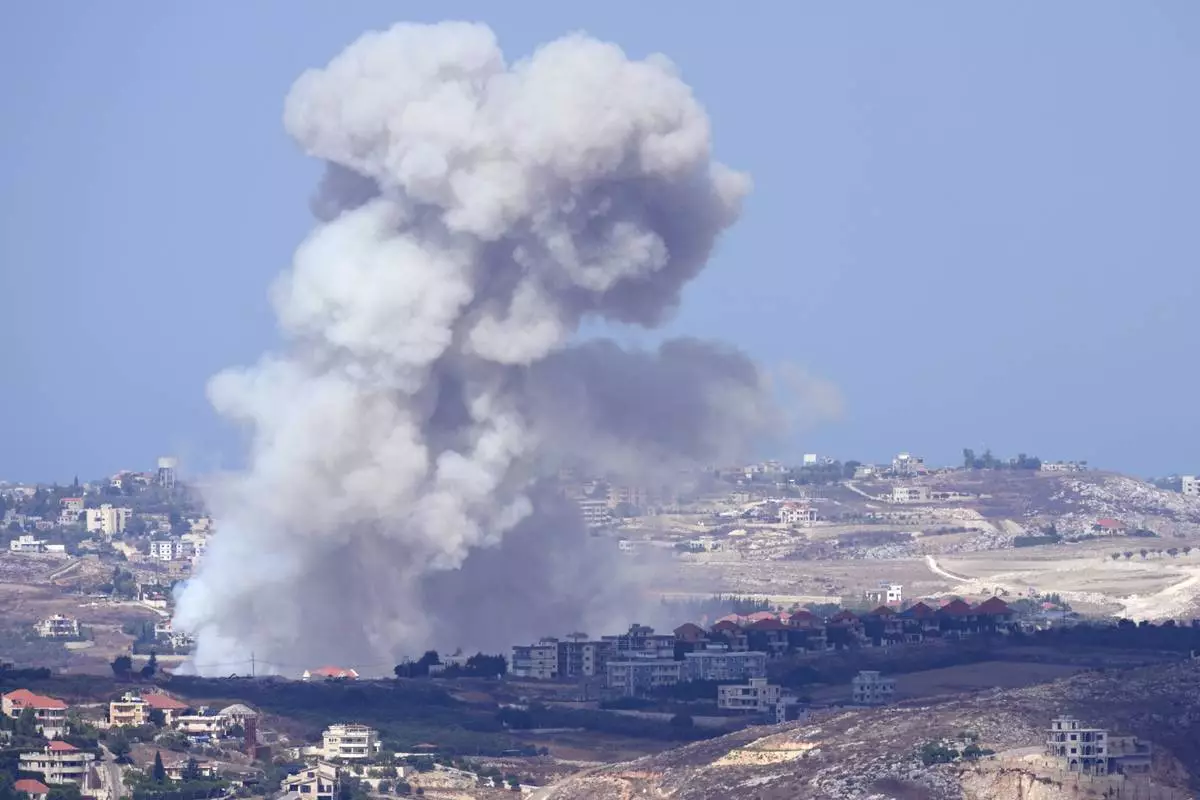
Smoke rises from Israeli airstrikes on villages in the Nabatiyeh district, seen from the southern town of Marjayoun, Lebanon, Monday, Sept. 23, 2024.(AP Photo/Hussein Malla)
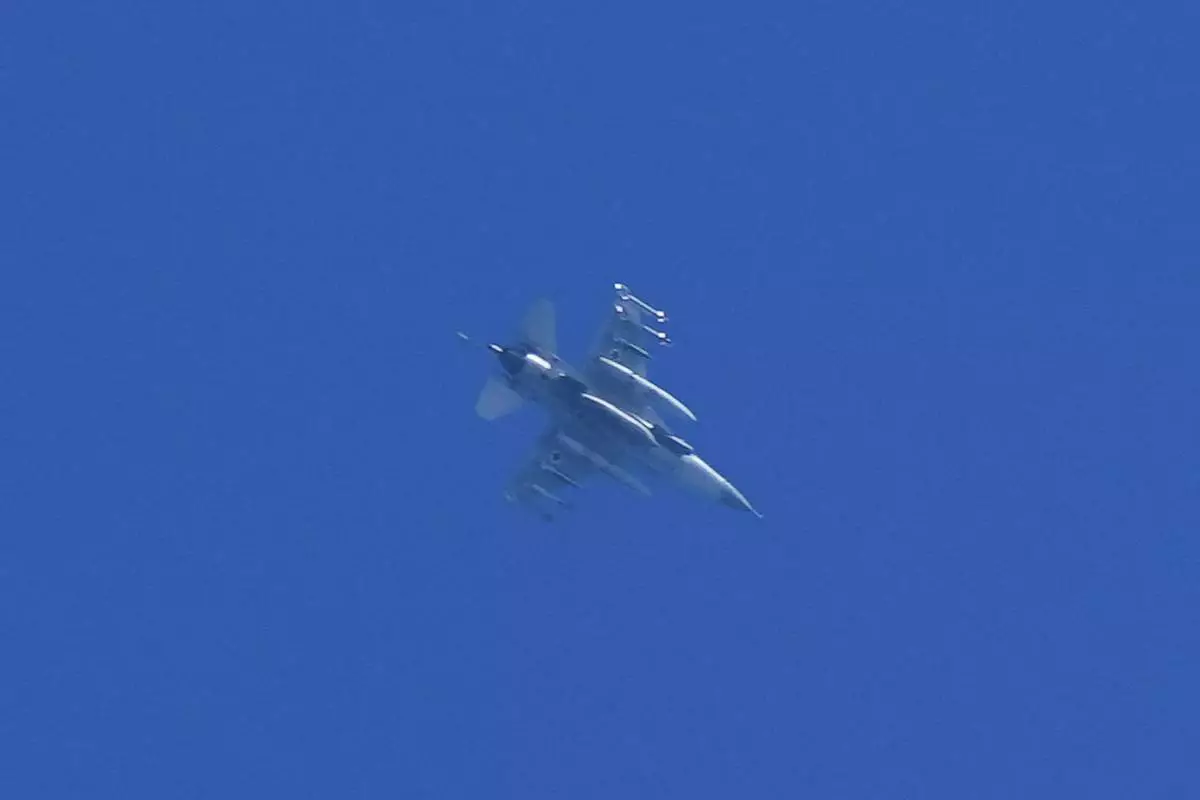
An armed Israeli fighter jet is seen from Haifa, northern Israel, on Monday, Sept. 23, 2024. (AP Photo/Baz Ratner)
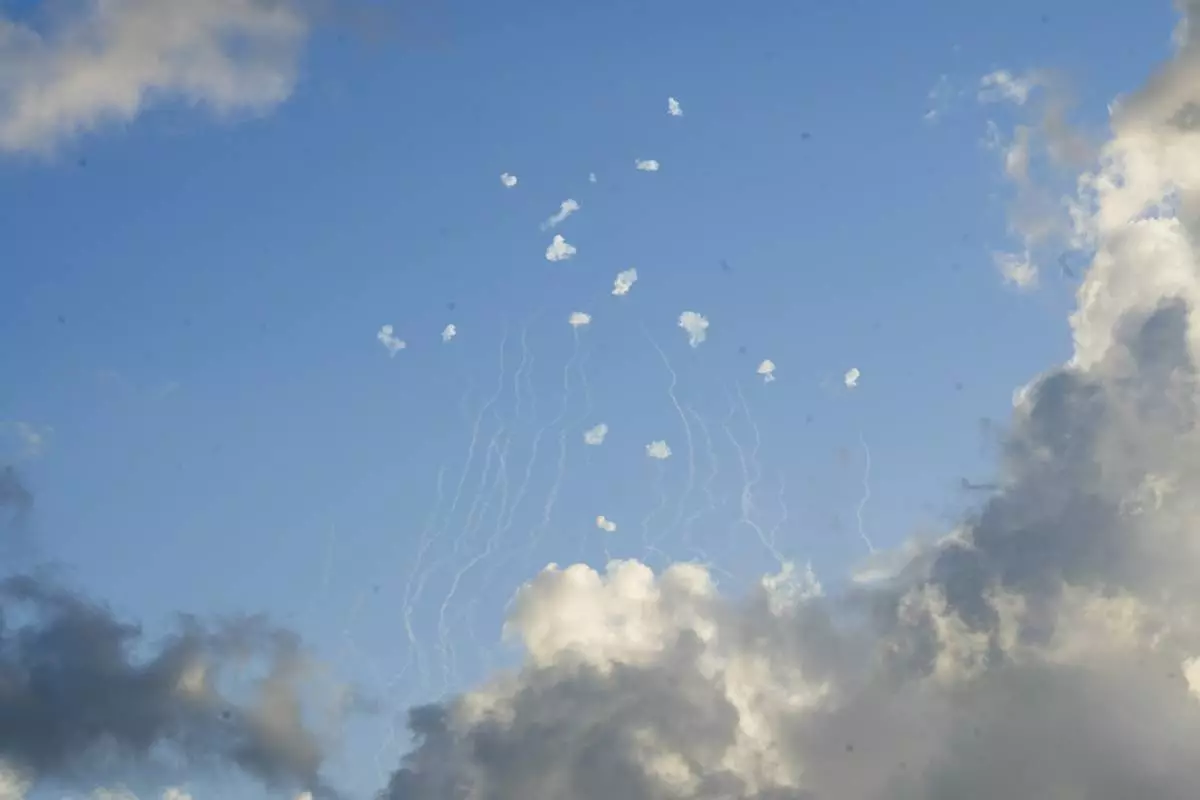
Israeli Iron Dome air defense system fires to intercept rockets that were launched from Lebanon, in northern Israel, Sunday, Sept. 22, 2024. (AP Photo/Baz Ratner)
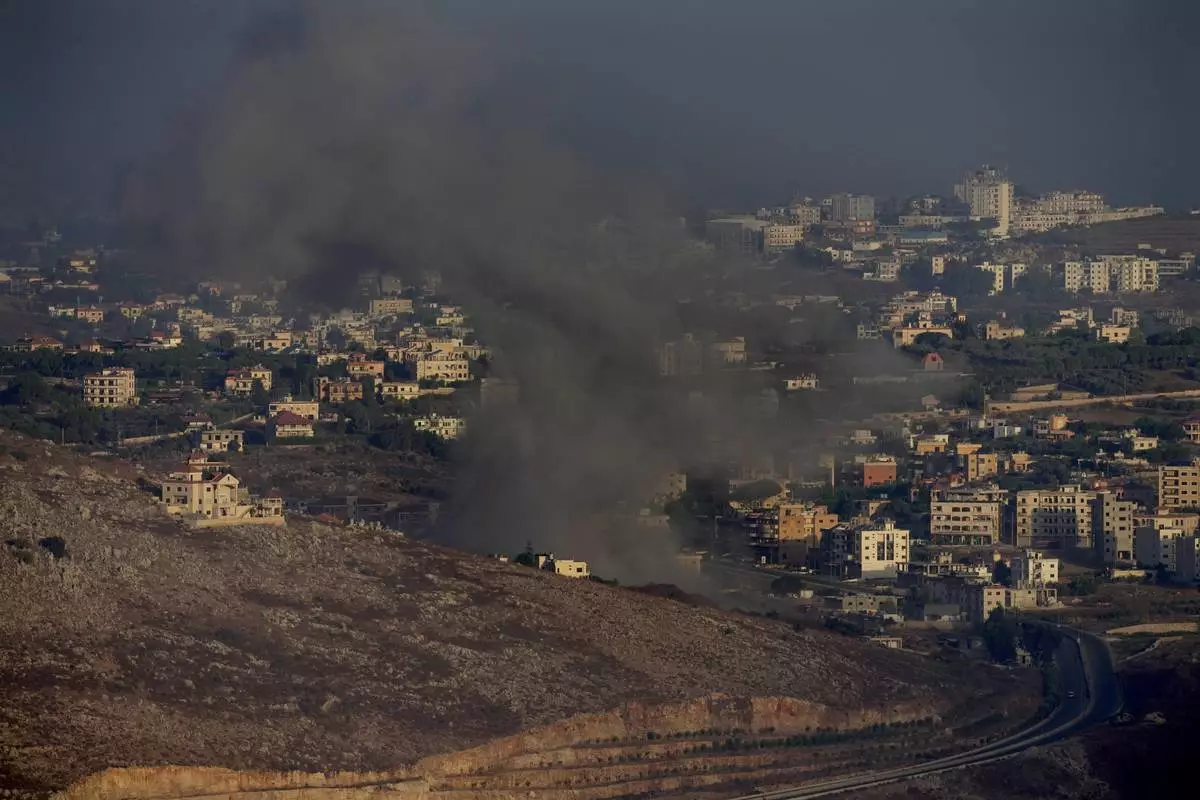
Smoke rises from an Israeli airstrike on Kfar Rouman village, as seen from Marjayoun town, south Lebanon, Monday, Sept. 23, 2024. (AP Photo/Hussein Malla)
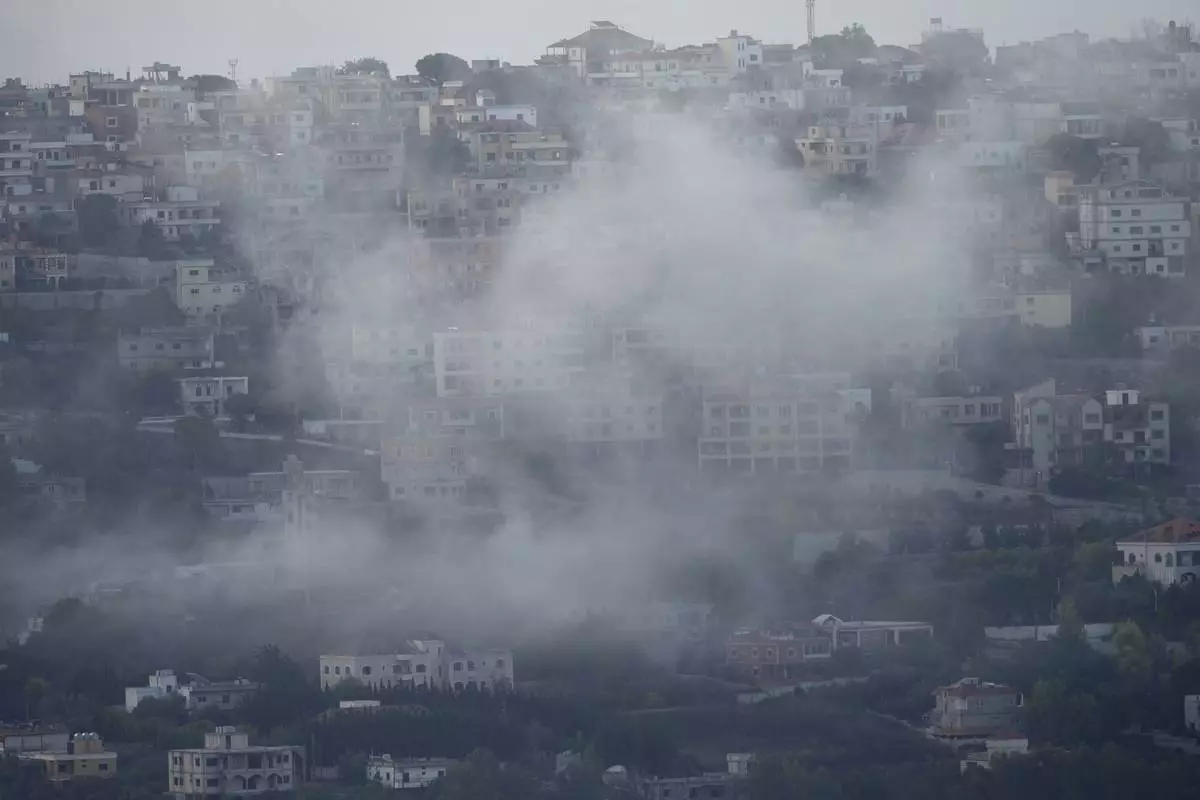
Smoke rises from an Israeli airstrike on Khiam village, as seen from Marjayoun town, south Lebanon, Monday, Sept. 23, 2024. (AP Photo/Hussein Malla)
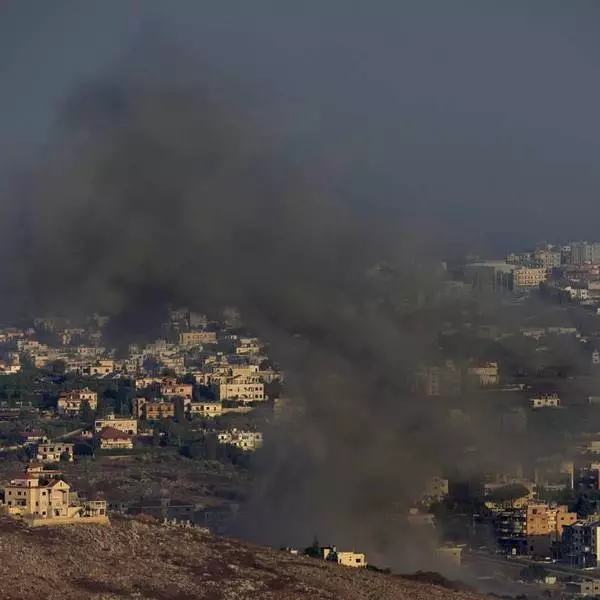
Israel calls on Lebanese to leave homes where Hezbollah stores arms as warplanes launch new strikes
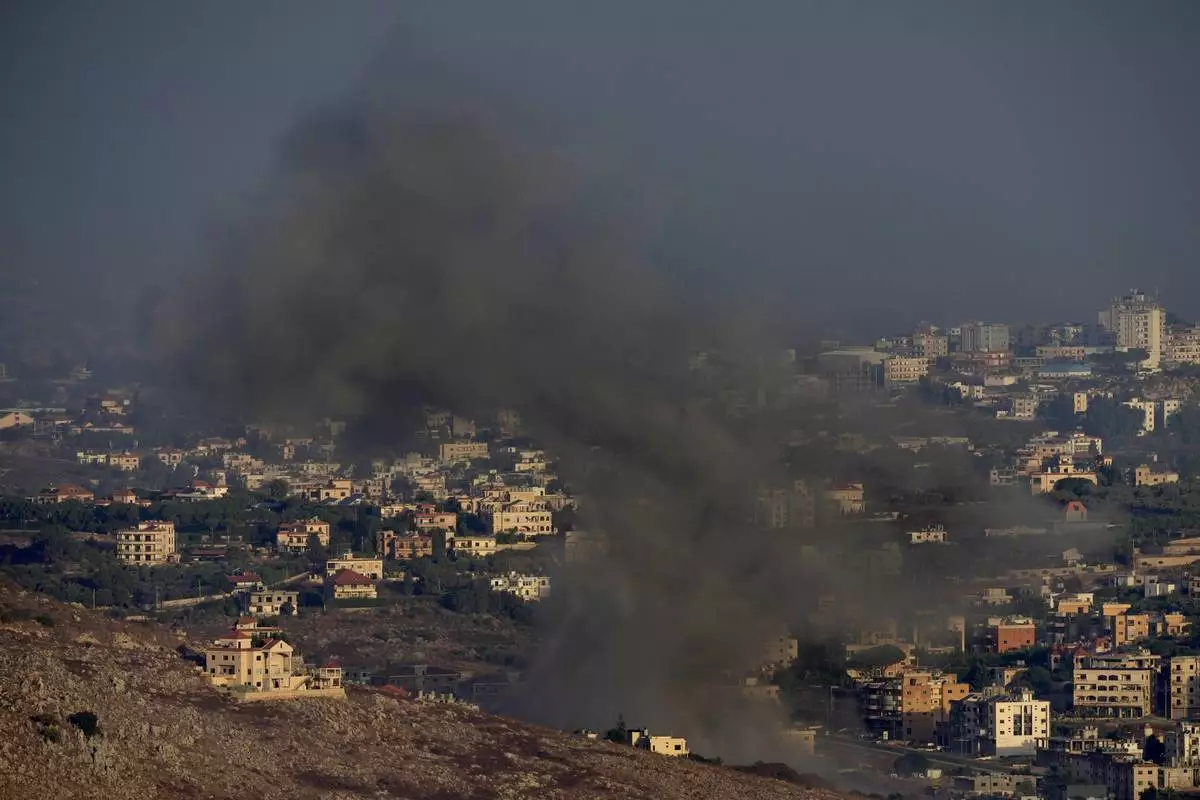
Smoke rises from an Israeli airstrike on Kfar Rouman village, as seen from Marjayoun town, south Lebanon, Monday, Sept. 23, 2024. (AP Photo/Hussein Malla)
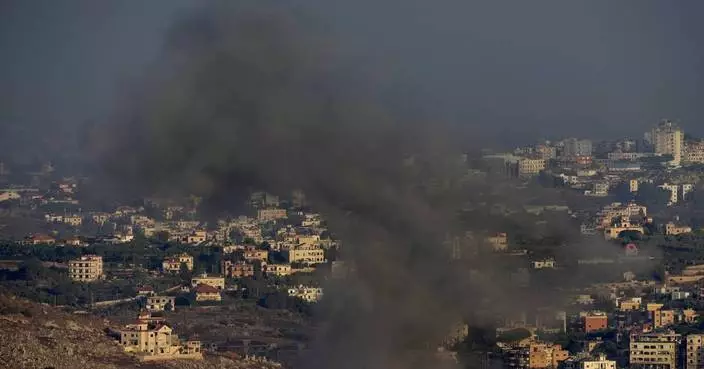
Israel calls on Lebanese to leave homes where Hezbollah stores arms as warplanes launch new strikes






